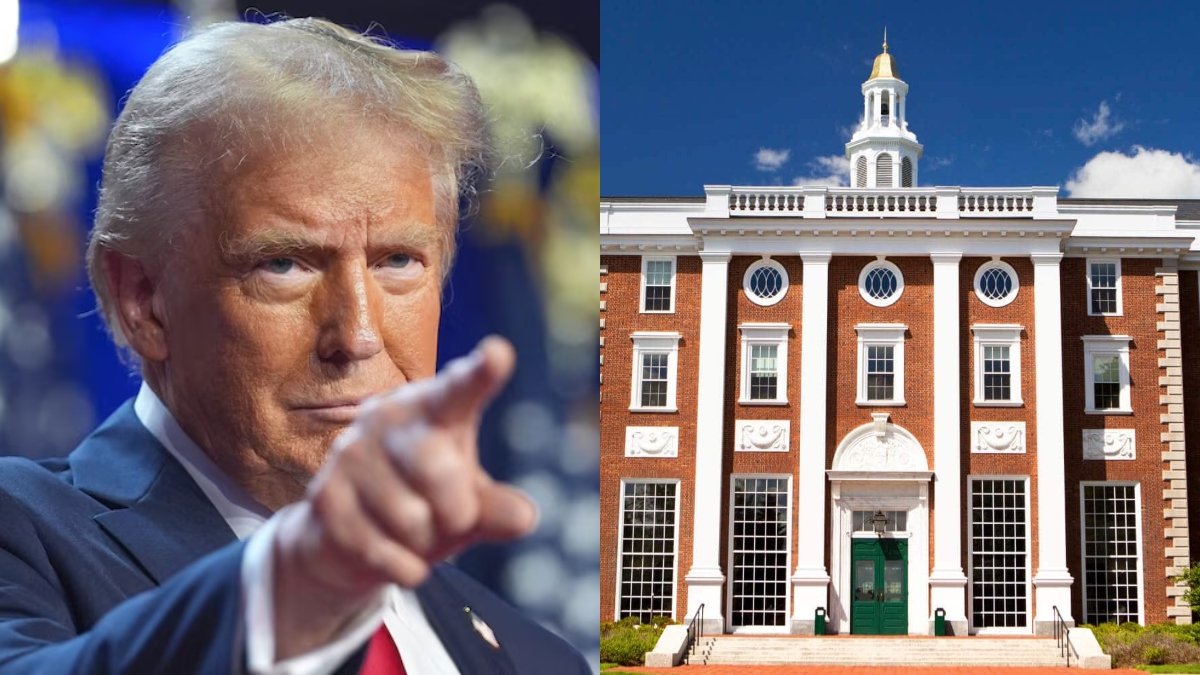Trump Administration Blocks Harvard from Enrolling Foreign Students and Warns Other Universities
In a dramatic escalation of its stance on immigration and higher education, the Trump administration has revoked Harvard University’s certification to enroll international students starting with the 2025-2026 academic year. This move forces thousands of current foreign students at Harvard to either transfer to other institutions or risk losing their legal status in the United States. The decision also comes with a warning that other universities could soon face similar sanctions.
Harvard’s Foreign Student Population at a Glance
Harvard, one of America’s most prestigious institutions, had enrolled nearly 6,800 international students in the 2024-2025 academic year—about 27% of its total student body. These students come from more than 140 countries, with the largest groups originating from China, Canada, and India, collectively accounting for around 40% of the international student population. The university’s diverse global community is a vital part of its academic culture and financial model, as foreign students contribute significantly through tuition and enrich campus life.
What Sparked the Revocation?
The Homeland Security Secretary ordered the termination of Harvard’s Student and Exchange Visitor Program (SEVP) certification, citing allegations that the university was “fostering violence, antisemitism, and coordinating with the Chinese Communist Party.” The administration accused Harvard of failing to comply with requests for information regarding foreign students’ visa status and protest activities.
Officials framed the action as a matter of national security and institutional accountability, emphasizing that admitting foreign students is a privilege and not a guaranteed right. Secretary Noem demanded that Harvard hand over extensive records about foreign students’ protest participation, including any video or audio footage from the last five years, within a strict 72-hour deadline as a condition to restore its certification.
Harvard’s Response and Legal Pushback
Harvard condemned the decision as unlawful retaliation, stating that the move threatens not only the university community but also the nation’s academic and research mission. The university remains firmly committed to supporting its international students and protecting their rights.
The decision has drawn sharp criticism from many corners, including members of Congress who see it as a politically motivated attack on academic freedom. Representative Jaime Raskin called it “an intolerable attack on Harvard’s independence” and condemned it as government retaliation for Harvard’s refusal to cooperate with the administration’s demands.
The university has already filed lawsuits to challenge the visa revocation and the freezing of approximately $3 billion in federal grants, which the government has withheld recently amid escalating tensions.
Broader Crackdown on Universities
The Trump administration’s action against Harvard appears to be part of a broader campaign to scrutinize and control U.S. universities’ policies regarding foreign students. Secretary Noem indicated that similar actions could be taken against other institutions, warning universities across the country to “get your act together.”
This crackdown fits within a larger pattern under Trump’s tenure to restrict immigration and challenge institutions perceived as harboring anti-American or politically left-leaning ideologies. Universities like Columbia and others have been mentioned as potential next targets, signaling a continuing crackdown on higher education’s international dimensions.
Impact on International Students and the Future
The sudden policy shift has placed thousands of international students in jeopardy, many of whom have had no involvement in political controversies. Immigration advocates argue that this punitive action harms innocent students who come to the U.S. seeking education and opportunity.
A federal judge has recently ruled that the administration must follow proper procedures before terminating the legal status of foreign students nationwide, but it remains unclear how this ruling will influence the situation at Harvard.
For Harvard’s international students and others across the country, these developments introduce a climate of uncertainty, affecting their academic plans, immigration status, and sense of security in the United States.
Conclusion
The Trump administration’s decision to revoke Harvard’s ability to enroll foreign students marks a significant escalation in its immigration enforcement and its broader political conflict with elite academic institutions. While the move is framed as a national security measure, it has sparked fierce legal battles and widespread criticism for its impact on students and academic freedom.
As universities navigate this turbulent landscape, the future of international education in the U.S. faces serious challenges, with consequences that could reshape the country’s global academic leadership for years to come.
